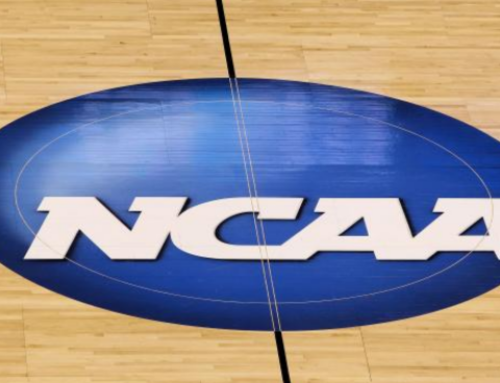Recruiting Interactions With College Coaches
By now, you’ve probably heard the adage, “You only have one chance to make a first impression.” Admittedly, it’s a little folksy, but also most applicable to your recruiting interactions with college coaches, players and administrators. Sure, your physical attributes and athletic skills are the most important factors coaches consider throughout the process, but your character and how you present yourself can be the tipping point for receiving an offer. Separate yourself from the pack of hungry candidates vying for that last scholarship with your communication skills.
Coaches pick players who can focus on improving themselves—academically, athletically and personally—without comprising any facet. If you have a FB profile—which you should, since it’s the 21st Century—or an athletic page on a recruiting site, display your academic accomplishments, community service and other interesting activities that demonstrate your well-roundedness.
When coaches watch games, they judge a potential recruit’s character from the stands. Yes, they want to see you dominate athletically, but they also conduct their own psychological evaluation by studying how you interact with others. If you know a college coach is in the stands, avoid yelling at teammates on and off the field, and never show insubordination to your coaches.
Many athletes can compete with your athletic skillset, but not all of them have the solid character to back it up, which means you have to prove that you’re more than a standout jock.
Body language and posture reveal a lot about you as a person. Stand up straight. It sounds simple, but it’s a key to body language. Your posture is a reflection of your personality, and slouching hardly conveys strength and confidence. During a game, always show a high level of energy—even if you’re not playing well or the outcome is not in your favor.
When first meeting a coach, offer a firm handshake. Don’t overdo it, though. Breaking a coach’s hand would probably hurt your chances of locking down a scholarship. For more information on how to deliver the best handshake, check out our “Shake It Like You Mean It” in the Fall 2009 issue.
Eyes are the gateway to a person’s soul. If you don’t think that deep, at least use them to make eye contact from the start. Coaches want athletes with character and maturity, and frequent eye contact is a sign of confidence.
Extras
• Be on time
• Don’t chew gum
• Turn off your cell phone
• Ask questions [you’re interviewing the coach, as well] • Speak slowly and avoid using slang
• Relax
• When leaving, shake hands again and thank the coach for his/her time
RECOMMENDED FOR YOU
Recruiting Interactions With College Coaches
By now, you’ve probably heard the adage, “You only have one chance to make a first impression.” Admittedly, it’s a little folksy, but also most applicable to your recruiting interactions with college coaches, players and administrators. Sure, your physical attributes and athletic skills are the most important factors coaches consider throughout the process, but your character and how you present yourself can be the tipping point for receiving an offer. Separate yourself from the pack of hungry candidates vying for that last scholarship with your communication skills.
Coaches pick players who can focus on improving themselves—academically, athletically and personally—without comprising any facet. If you have a FB profile—which you should, since it’s the 21st Century—or an athletic page on a recruiting site, display your academic accomplishments, community service and other interesting activities that demonstrate your well-roundedness.
When coaches watch games, they judge a potential recruit’s character from the stands. Yes, they want to see you dominate athletically, but they also conduct their own psychological evaluation by studying how you interact with others. If you know a college coach is in the stands, avoid yelling at teammates on and off the field, and never show insubordination to your coaches.
Many athletes can compete with your athletic skillset, but not all of them have the solid character to back it up, which means you have to prove that you’re more than a standout jock.
Body language and posture reveal a lot about you as a person. Stand up straight. It sounds simple, but it’s a key to body language. Your posture is a reflection of your personality, and slouching hardly conveys strength and confidence. During a game, always show a high level of energy—even if you’re not playing well or the outcome is not in your favor.
When first meeting a coach, offer a firm handshake. Don’t overdo it, though. Breaking a coach’s hand would probably hurt your chances of locking down a scholarship. For more information on how to deliver the best handshake, check out our “Shake It Like You Mean It” in the Fall 2009 issue.
Eyes are the gateway to a person’s soul. If you don’t think that deep, at least use them to make eye contact from the start. Coaches want athletes with character and maturity, and frequent eye contact is a sign of confidence.
Extras
• Be on time
• Don’t chew gum
• Turn off your cell phone
• Ask questions [you’re interviewing the coach, as well] • Speak slowly and avoid using slang
• Relax
• When leaving, shake hands again and thank the coach for his/her time
RECOMMENDED FOR YOU
Create A Free Recruiting Profile Today!
CaptainU helps athletes & parents not only be proactive but also to manage and take control of their entire recruiting journey.










